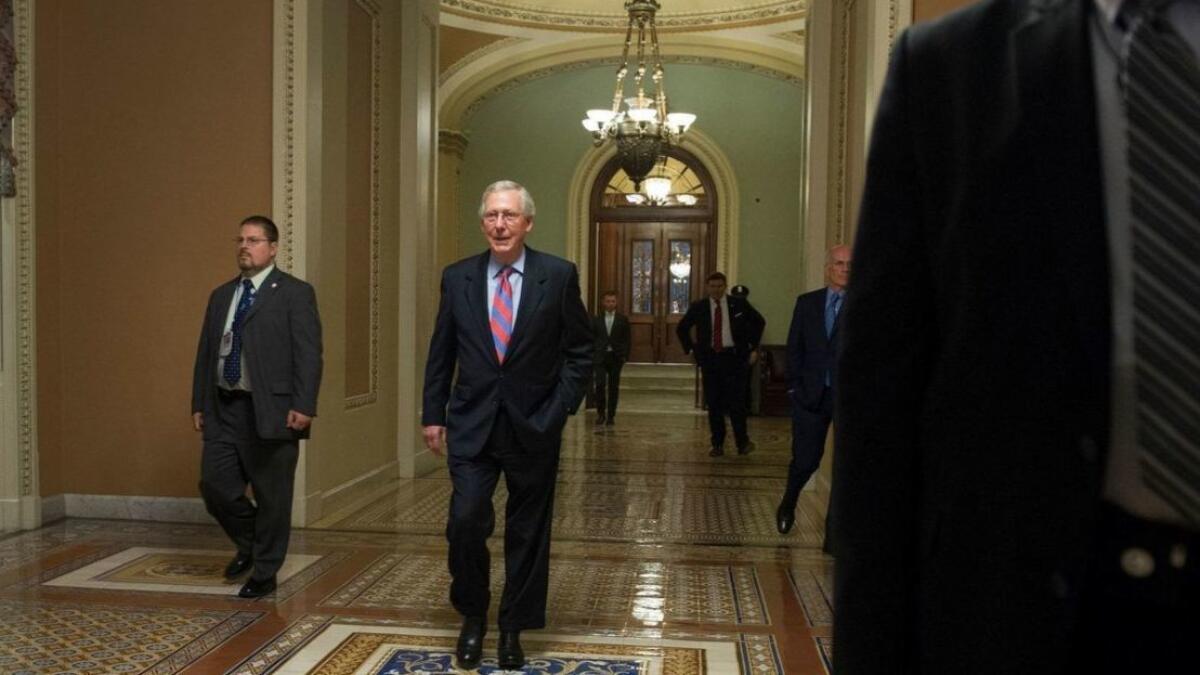Opinion: Finally, the GOP believes in fiscal stimulus — right when we don’t need it

First, the GOP-controlled Congress gave us deep tax cuts — $1.5 trillion over 10 years. Now they’re dishing out big spending increases (and more tax cuts) totaling roughly $500 billion, most of it over the coming two years. You’d think we were in a deep recession, instead of riding an eight-year wave of slow but (relatively) steady economic growth.
These same Republicans excoriated President Obama for running trillion-dollar deficits during his first term, when the deep recession and stuttering recovery were taking a bite out of federal tax revenues. Now that the economy no longer needs any stimulation from the Treasury, the GOP thinks trillion-dollar deficits are a good thing.
Democrats don’t win any plaudits for fiscal responsibility either; their goal in the budget negotiations seemed to be achieving the same level of profligacy in non-defense spending that Republicans demanded for the Pentagon — and they largely succeeded. But at least they don’t claim to be the party of small government.
At the very least, Congress ought to have a plan for bringing its budget under control.
What’s worse, the spending bill passed early Friday morning will make it harder to control rising costs in Medicare, which is a more important factor in Washington’s long-term fiscal problems than spending on new weapons or other discretionary programs. The measure abolished the Independent Payments Advisory Board, a panel created by the 2010 Affordable Care Act to make changes in Medicare if spending per beneficiary grew faster than the economy. The mechanism was designed to push through systemic changes in the delivery and payment system that eliminate perverse incentives and get more bang for the Medicare dollar. But despite the law’s strict prohibitions on changing Medicare benefits or rationing care, critics of the IPAB labeled it a “death panel” and demagogued it into nonexistence.
We wouldn’t argue that deficit spending is inherently evil; in fact, it’s a natural and helpful response to an economic downturn. But when the economy is growing, running large deficits needlessly piles on debt, requiring Washington to spend a growing percentage of its revenue on debt service and potentially driving up interest rates.
At the very least, Congress ought to have a plan for bringing its budget under control. Republicans supposedly laid out one in the budget resolution they pushed through last year, but it’s evidently worth less than the paper on which it was printed. It’s easy to pass nonbinding resolutions calling for massive rollbacks in entitlement programs; it’s more than a little bit harder to actually set binding priorities and make real choices.
Twitter: @jcahealey
More to Read
A cure for the common opinion
Get thought-provoking perspectives with our weekly newsletter.
You may occasionally receive promotional content from the Los Angeles Times.











